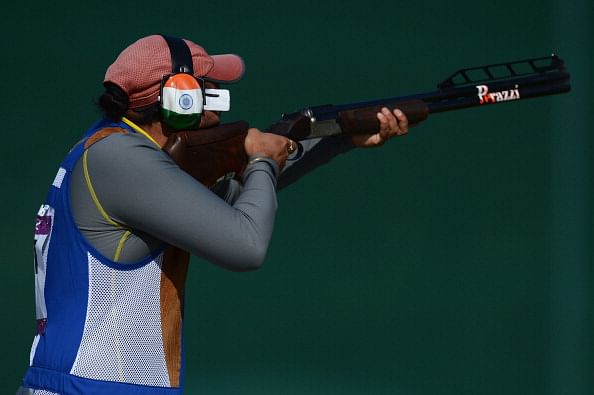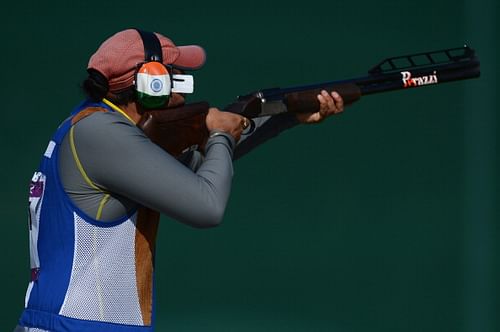
India at London 2012: Accountability in Sport – Not in India

LONDON, ENGLAND – AUGUST 02: Ronjan Sodhi of India competes in the Men
The Indian Olympic contingent finally had a day where there was more to cheer about their performances than to lament on what could have happened. The standout performance of the day came from India’s top female athlete, shuttler Saina Nehwal, who played brilliantly against her vastly experienced Danish counterpart to reach the semi-finals of the women’s singles badminton event. Vijender Singh won a closely contested bout against American Terell Gausha, showing great tactical play while doing so. Leander Paes and Sania Mirza’s mixed double pair had a good outing at Wimbledon as well, comfortably beating their Serbian rivals in straight sets.
Even P. Kashyap, who lost in straight sets to World No. 1 Lee Chong, played with a huge heart, showing immense grit and character in a tough tie. Kashyap was impressive throughout the match, especially in the first game where he matched Lee point-to-point. His experience at the Olympics will give him great confidence in his abilities, and I am sure he will be determined to come back four years later and win a medal at the Olympics.
All the highs throughout the day for India could not mask the disappointment in the Men’s double trap shooting event, where Ronjan Sodhi failed to even qualify for the finals. The obvious disappointment came partly due to the result, but the majority of it stemmed from the post-event reaction given by Sodhi. In professional sport, everyone has a bad day in the office, but it’s how you react to it that matters.
Sodhi’s reaction to his performance was, and I quote, “I just don’t know what happened”. A similar reaction was given by World No.1 Indian Archer Deepika Kumari, after losing in the round of 32. Later, when asked by reporters if Sodhi poor performance was related to ‘stage fright’ of performing in the Olympic, he denied it. He also went on to say that he was not used to crowds shouting in the background, but in the same sentence denied it to be an excuse. Then why mention it in the first place? His reaction is even more disappointing when put into perspective with the confident comments he made before the event, saying that he felt no pressure at all, but felt a sense of responsibility to the nation.
Sodhi and Deepika’s reactions were utterly disappointing, but the entire blame cannot be put onto them. Such reactions stem from a lack of accountability and a culture of denial present in India sport, which is a reflection of Indian society, where these shortcomings occur frequently in professional and personal matters. Deniability and a lack of accountability is seen in every sphere of Indian sport from professional sportspersons themselves to sport administrator and national federations.
Why is it that the different stakeholders present within professional sport in India are not held accountable to their preparation, performance, governance, transparency and results? What would be the reactions of top executives at an Indian company if a working professional failed to deliver on a project, and reacted by saying “I don’t know what happened”? Why should Indian sport be any different?
By Suheil Tandon
(The author is Co-founder & Partner, Pro4Sport Solutions, a high-performance coaching firm that trains young athletes in the sport of Basketball, Cricket, Football and Table Tennis)